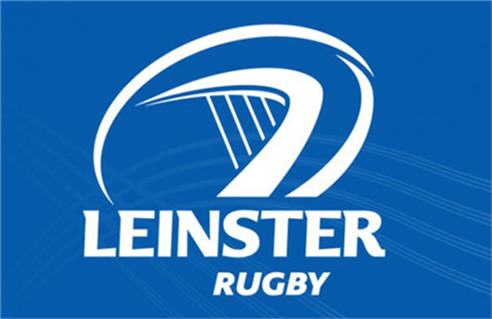Leinster Rugby is owned by the IRFU, the Irish Rugby Football Union.
Leinster raises and controls a large part of its budget through season tickets, sponsorships, and merchandise. However, their prize money, TV licensing revenue, and some other income go directly to the IRFU.
Eventually, the IRFU returns a portion of that revenue to Leinster.
It may seem complicated, but this article breaks it down clearly.
Leinster Ownership Model
Leinster operates under a typical subsidiary/parent company model with the IRFU.
Leinster has a Chief Executive Officer and other officials that run the day-to-day operations of a large sports club. However, they report to the IRFU and must clear major decisions with the head office.

Legal Structure
The Irish rugby authorities were largely against rugby turning professional. But they had to take action when the world governing body decided to flip the switch in 1996.
The IRFU formed a company in 1997 called “Leinster Rugby Company Limited” to run professional rugby in the eastern province of Ireland.
If there’s any doubt as to ownership, I’ll tell you that the registered address is:
Irish Rugby Football Union, 10-12 Lansdowne Road, Ballsbridge Dublin 4.
address with Company Registration Office
How Leinster And The IRFU Split Revenue
The 2021/2022 season was the first in years in which Leinster didn’t win a trophy. However, they generally reach the finals of domestic and European tournaments.
You may be surprised to learn that the IRFU gets all the prize money for the European Championship.
Leinster gets a share of the prize money for winning the PRO14 or URC (this tournament keeps changing names), but a significant portion also goes to the IRFU.
The IRFU also takes all the TV licensing money when Leinster matches are shown on Sky, BT Sports, Irish television, and any other TV networks.
And that’s not the end of it.
The IRFU also takes half of the gate receipts for Leinster’s pool matches in the European Championship. They also take half if Leinster has a home quarterfinal.
What about if Leinster gets a home semi-final in the European tournament? My understanding is that the ERC (European governing body) swoops in for the gate revenue.

Leinster ultimately benefits from what the IRFU takes
You may be thinking that this seems very unfair.
However, after the IRFU has hoovered up this revenue, they redistribute it back to their subsidiary branches. In other words, part of Leinster’s annual budget comes back from the IRFU.
The downside (purely from the Leinster point of view) is that they share this redistribution with three other provinces: Munster, Ulster, and Connacht.
Does Leinster Control Any Revenue?
Leinster keeps a portion of the gate receipts, but they also have direct control over other revenue sources.
Although they cough up some of the gate receipts, they keep the full portion of season ticket sales.
The Leinster executives are responsible for negotiating sponsorship deals, and the branch keeps all that revenue. The exclusive sponsors include a car rental company, sports drinks, and a clothing company.
The Leinster branch also retains income from the merchandise that they sell online and at their home ground (RDS). This includes branded gear promoted by the players.
They also are mandated by the IRFU to arrange specific sponsorships or salary top-ups for their top players. It’s known that part of Jonny Sexton’s salary is funded by a third party.
You can read more in our article on how much Leinster rugby players earn.

Missing out on other stadium revenue
Leinster is the only province in Ireland that doesn’t own its home ground. The rugby club has a long-term lease on the RDS in South Dublin.
This means that they don’t have the option of getting extra revenue by renting out the stadium for concerts. They also don’t benefit from the food and beverage concessions.
Leinster holds its biggest games in the Aviva Stadium, where the national team plays. The annual fixture with Munster is there, as is one pool match in the European Championship.
The Aviva Stadium is jointly owned by the IRFU and the national football association, the FAI.
This means that Leinster has to pay rent to both the IRFU and an outside organization when it plays these big matches.
The IRFU retains oversight over Leinster
Leinster has control over season tickets and sponsorship, but the IRFU must still sanction any big decisions.
For example, Leinster couldn’t just decide to triple their season ticket pricing. The IRFU would have the final say on whether that was good for the sport in general.
Similarly, Leinster must get sponsorships approved by the head office in Lansdowne Road. Any business with a shady or controversial background could not be pushed through by Leinster.
Leinster Is Partly Funded By The IRFU
A former CEO of Leinster Rugby gave a breakdown of their annual revenue.
He said that the sponsorships and their part of the gate receipts total to about €15 million. However, the IRFU also topped up the annual budget by €4 million a year.
You may be thinking, sure, that’s the money that the IRFU took from Leinster in the first place. But Irish rugby doesn’t work like that.
By far the largest source of income in Irish rugby comes from the national team. The annual reports show that international matches generate over 80% of the IRFU’s revenue.
In contrast, Leinster makes up a quarter of the 15% of the income that the IRFU takes from the four provinces.
The gate receipts from matches at the Aviva Stadium make up a portion of the international revenue. But the lion’s share comes from television rights.
This is what saved Leinster during COVID when games were canceled, and then only returned with empty stadiums.
The staff and players continued to get paid, although the top players took a moderate pay cut.
This was achieved because the IRFU stepped in and significantly increased its contribution to the Leinster budget during those difficult times.